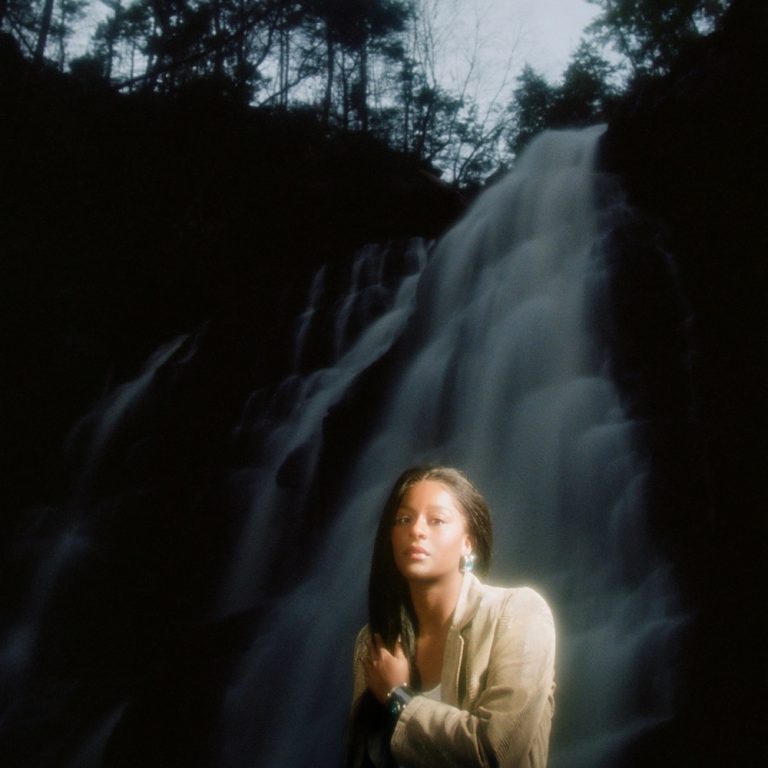There is a certain audacity in naming your album something that someone might use to deride it. The second album from experimental artist Taja Cheek, aka L’Rain, is given one such title: Fatigue. It’s not a particularly appealing state of being, fatigue; the word comes full with connotations of exhaustion, heaviness, labored breathing, a need for a long nap. It’s a gamble for L’Rain, especially considering the sheer density and many-layered soundplay she usually dabbles in. Left to less capable hands, music of this kind can surely grow wearisome, but, thankfully, with Cheek’s deft hand with sound design and a clear handle on her own aesthetic, Fatigue ends up being a mostly thrilling sonic adventure – and it finishes its journey before it even hits the 30-minute mark. Themes of family, pain, and much more, are rife in the album, even though it’s sometimes hard to pin it all down precisely.
Album opener “Fly, Die” gets us off to a suitably rocky start. The sound cuts in and out as the track asserts itself, which will undoubtedly lead many listeners to wonder if their headphones have come unplugged. But no, it’s just Cheek and co-producers Andrew Lappin and Ben Chapoteau-Katz playing games with us, giving a small taste of the kind of ride we’re in for on Fatigue. As it progresses, “Fly, Die” interweaves numerous samples, affected voice clippings, and rubbery textures. There’s a deep sense of darkness and unease here, which is only aided by the distorted voice of Quinton Brock asking resentful questions like, “When I’m down, that’s when y’all love me, huh?” The track sounds indignant, flitting from sound to sound without much warning, including some old fashioned radio jockey sirens and gently cooing background vocals. As Brock’s voice grows more and more impassioned, the atmosphere gets thicker and more suffocating, and then it’s over, in about two minutes.
It’s a daring start to the record, and sounds as if it could almost be some kind of intro track, before the ‘real’ songs start. But fear not: most of Fatigue is dominated by these kinds of full-throttle sonic experiments, Cheek rarely allowing her songs to take shape into anything close to a pop structure. And while it never quite hits the same fiery, blistering intensity of the opener, Cheek and company thoroughly explore the abstract and warped.
“IV” rides waves of woozy keyboards and brushed percussion. The cyclical “Suck Teeth” sounds like a particularly narcotic blend of Erykah Badu’s spacier tracks and the soulful pop of Lianne la Havas, as Cheek utters lines like “Your mother’s buried under life’s debris.” The longest track here, “Find It”, starts off slow, steadily and smoothly building up from a deep bass and percussion loop, Cheek’s vocal layers multiplying in heavenly fashion. As Cheek sings a relatively straightforward verse-chorus-verse song, the layers keep intensifying until it gives way to a void, as if the meat of the song was scooped out by some celestial hand. Then, distant church organ sparkles behind what sounds like a gospel sample and gentle, sensuous horns. It’s intoxicating.
Even the most song-oriented tracks here, like “Blame Me” and “Two Face” are off-kilter and marked by Cheek’s restless spirit. The former starts with a lithe, Moses Sumney-esque guitar lick with Cheek intoning, endlessly duplicating her voice, “You were wasting away, my god / I’m making my way down south,” sounding a bit like Xenia Rubinos on Mars. The middle of the track is taken up by a bittersweet verse, buoyed by gentle singing and sparkling drums. When the refrain returns, it sounds darker and heavier than before. “Two Face”, meanwhile, is full of dizzying arrays of percussion, keys, bass, horns, and voices. It is by far the most robust and lasting track here – no wonder it was the album’s first single.
And that’s the rub for Fatigue: while it isn’t exactly as tiring as its title suggests (nothing this restlessly experimental and fleet-footed could be, really), it is bogged down a bit by its own spirit. Cheek is a tinkerer at heart, as was evidenced by her spacey and atmospheric debut record L’Rain, but here the ideas are sometimes a bit too ephemeral to really land. The interludes are the most glaring example of that; there are six interludes here, none of which last longer than 30 seconds, and none of which feel especially integral.
At the end of one of them — “Walk Through” — we hear Cheek ambling through a guitar progression, singing a wordless melody, only to mess up a bit. “Oops,” she says, with a tiny chuckle. It’s one of the most surprising moments on the record, because Fatigue, for all its many-sided intrigue and snatches of moving beauty, can be a bit like driving by a series of natural wonders at 150mph – too fast to truly appreciate what’s there. There’s a purposely otherworldly vibe to these 29 minutes, but the moments when Cheek the artist is most nakedly visible in the constellation are when Fatigue feels most successful.

